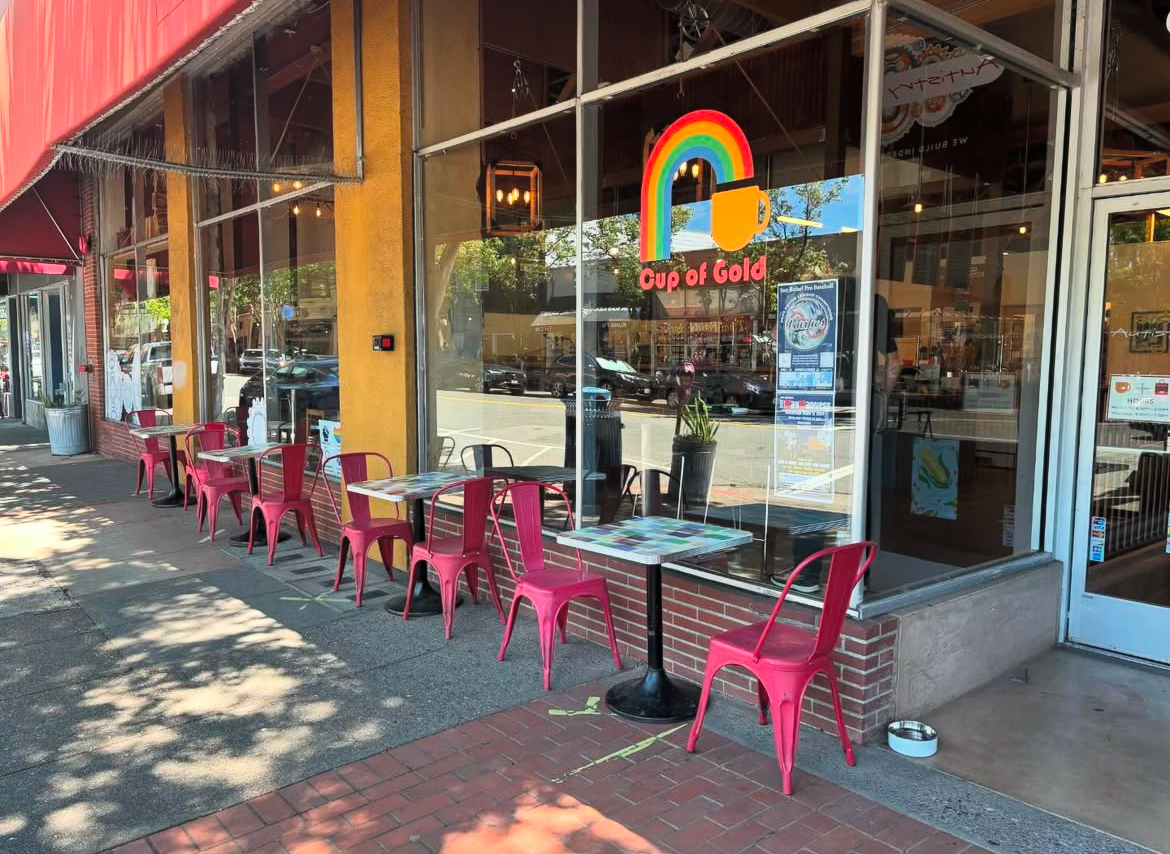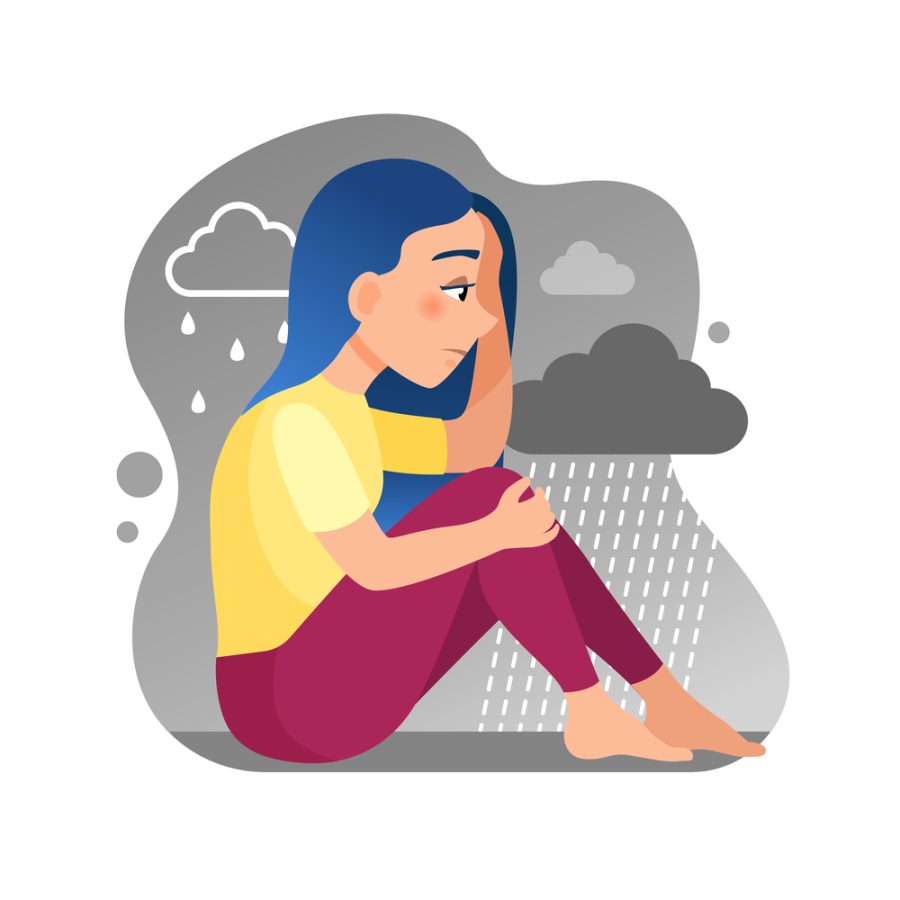PTSD is Not a Joke
January 5, 2022
Imagine that the worst moment of your life is replayed to you at random times throughout your everyday life. As your worst moment is replayed, your mind and body are thrown back through time and you have to experience that event over and over again. You feel every sensation and emotion you felt at that time the same way you felt it then. You relive the moment. You can’t control when this starts, and you can’t make it stop. Your mind is doing everything it can to use your past trauma to try to make you believe you’re in immediate danger. This is how I would describe being triggered as a person with post-traumatic stress disorder (PTSD).
It’s scary. It’s really scary.
People sometimes get PTSD after experiencing trauma. People with PTSD have triggers that relate to their past trauma, and exposure to those triggers can bring that person emotionally and/or physically back to the event in their perceptions. PTSD is very complex and people often don’t experience it the same way. The impact of its many symptoms can range from small to completely debilitating.
I had an emotionally and verbally abusive father (who I’m away from now!) and witnessed some physical fights, and was in physically dangerous situations because of him. Although I haven’t seen him in six years I have strong memories of being in the back of a speeding and swerving car with my 4 and 6 year old step-sisters next to 8 year old me as we muffled our cries while watching my biological father scream at their mom. I suspect their mom was experiencing her own PTSD flashbacks as she swerved the car recklessly trying to scare him into stopping. My sisters and I muffled our own cries and each other’s cries because we knew from experience that if the parents heard us crying, everything would worsen and we knew their mom might crash the car. We were afraid of dying.
I am often brought back to this moment and many others.
I frequently hear jokes about PTSD in our community and online. Even close friends and family members will say “That presentation will give me PTSD”, “80’s fashion gave me PTSD”, or “College applications are giving me PTSD”. Part of me is grateful that those people haven’t had to experience the living nightmare that is PTSD and I hope they never will. But what jabs at me is the feeling of fear and numbness seeping into my mind and body. It’s a very eerie feeling accompanied by a pit in my stomach. I am often mentally paralyzed for a moment after hearing my condition being used as a punchline. At that moment I can’t use my words to communicate that they shouldn’t joke about PTSD. No mental illness should be joked about.
PTSD is very common. According to the US National Center for PTSD, 6 in every 100 people will have PTSD at some point in their life in the United States. 8% of women and 4% of men develop PTSD. When you joke about PTSD, you don’t know who you are triggering and what you are triggering to come up for them.
I’ve been triggered in our school as well. In one of my classes we were watching a show and there was a triggering scene. I immediately identified the trigger and put my head down, closed my eyes, covered my ears, and started to hum in an attempt to ignore the content and avoid getting triggered. But it was too late. I began silently crying and shaking at my desk as memories began playing in my mind and old but seemingly new feelings of terror flooded in.
I was so scared but I tried my best to suppress my urge to flee from the classroom and cry off campus. I tried so hard to blend in.
I stayed at my desk with my head down until it all passed. Only my table partner noticed but he didn’t acknowledge my red eyes when I finally looked up. He acted like everything was normal. That reaction helped me ground myself, but as always it took a long time for me to get back into my usual headspace. I remained hyper-vigilant, drained, and numb to joy until I fell asleep that night.
PTSD is incredibly difficult to talk about. Even while writing this article I triggered myself a few times. Since it’s so hard for someone with PTSD to talk about their experience with it, most people are ignorant and I think it’s the ignorance that allows people to make PTSD jokes.
In fact, it was very difficult for me to find anyone in our community who was diagnosed with PTSD and who wanted to talk about it. Luckily I was able to find one.
Another student with PTSD (who understandably wishes to remain anonymous) shared their perspective on PTSD jokes “I view it in the same way as depression jokes, and anxiety jokes,” they paused before continuing, “especially when people who don’t have the mental disorders joke about it, it loses its meaning and its severity . . . it seems almost romanticized.”
I know some people will defend PTSD jokes, saying, “Don’t be so sensitive!” or “But there’s no other word to describe some stressful experiences!” or “But it’s just a joke!”
Yes, I’ve heard all of these.
Having PTSD is a mental illness. If someone is sick or has a broken bone, you don’t say, “You’re just being sensitive,” or “Just get over it,” and it shouldn’t be any different for people with mental illnesses. Just because the illness is usually invisible doesn’t mean that it’s something people can will themselves to overcome. PTSD isn’t something that anyone chooses to have.
There are different ways to express the stress that you experienced without bringing PTSD into it. You can say, “College apps were stressful/hard for me/nerve-wracking.”
Joking about PTSD is extremely harmful because it is invalidating the absolute nightmare PTSD is. It’s not just a joke, it’s ableism. Don’t minimize a disability, my anguish, and the havoc it wreaks on my life for a really tasteless joke.
I would like to thank the student who shared their perspective and Mr. Simmons for giving me a place to talk about PTSD.






































